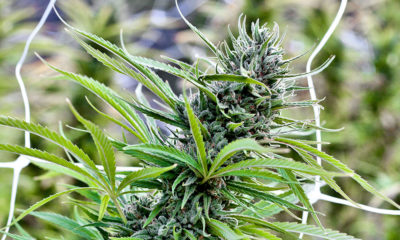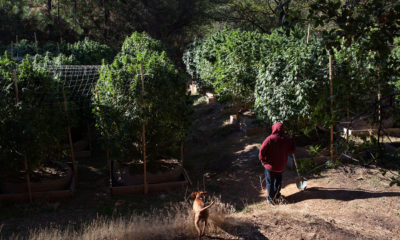
Grow
Jamaican Official: Country Must Stake Claim on Its Strains
A top Jamaican government official has called on the country identify and conserve local marijuana strains.
As the cannabis wave prepares to explode off the North American mainland, Jamaica’s Science and Technology Minister Dr. Andrew Wheatley spoke to the group of people getting the ball rolling on protecting the island’s national treasures. On Monday, the Jamaican Medical Cannabis Corporation and the National Foundation for the Development of Science and Technology signed off on its memorandum of understanding around how it will undertake a project to identify, isolate and conserve the nation’s local strains. Part of the plan is also that in doing this they’ll reinforce and expand Jamaica’s place in the market.
“It is like our birthright and we cannot allow persons from outside to come and take away our birthright,” Wheatley told those assembled, according to NationNews. “We have to position ourselves, we have to take on the mantle (and) do what we have to do… as it relates to medicinal marijuana research.”
Wheatley went on to say he believed the new project had the potential to make Jamaica a leading expert on medical cannabis.
Professor Errol Morrison, director general of Jamaica’s National Commission on Science and Technology, added, “What you are about to witness is the dedication of our scientific community to eventually [map] the scientific identification of our strain. Not a look, touch, smell, feel [but] DNA science to underpin what it is that we have been making claims for centuries.”
Longtime California cultivator and industry expert Deborah Sadler has been keeping an eye on the Jamaican cannabis scene for years and said she is witnessing the telltale signs of an industry anticipating it will get its shot.
“There are a lot of Canadians down there now trying to do stuff, but they’re not too successful so far,” Sadler told Cannabis Now. “Jamaica will attempt to do what is right by Jamaicans, but money will ultimately make the playing field not level. Jamaicans have no money, especially farmers. I have faith that for the most part they will create a space for All to play, but again, just like California it will come down to who can afford to do it.”
We asked the California Growers Association if officials in California were as concerned about preserving the local genome.
“No, we haven’t seen the same sort of support at all,” Executive Director Hezekiah Allen said. ”A lot more could be done to help growers in our state succeed in the regulated market. Instead, for many thousands, the road was a dead end while well-capitalized businesses seemed to have a fast track.“
Allen believes officials are not far off from seeing what they’ve done.
“Soon though, the state will realize that California is not known for bulk commodity grade THC; California is known for exquisite flavors, expansive and inviting highs, delicate entourages,” Allen said. “California cannabis is built on the craft and culture of cannabis, something that needs to be preserved here in California, and also in Jamaica, Canada, Nepal, and countless others communities around the world.”
Allen also commented on the California Department of Food and Agriculture’s forthcoming application program, which may help preserve those family cuts.
“Specifically to the concept of ‘strains’ this type of protection is what we hope will come from the CDFA Appellations program, now in development,” said Allen. “It was the recognition that California Growers have nurtured a botanical and economic treasure of biodiversity through decades of underground and isolated breeding programs.”
Allen said CGA advocated to expand the program to include varietals, “in the hopes that CDFA would support our local growers by documenting and cataloging the genetic diversity that makes California the global leader in cannabis.”
The National Cannabis Industry Association says it’s no surprise Jamaicans would want to be in charge or their cannabis destiny, but think there are plenty of best practices and hard-learned lessons they can take from North of the Caribbean.
“It is completely understandable that Jamaican leaders want to develop their own cannabis industry, particularly in light of the discrimination that cannabis growers and consumers have faced there historically,” NCIA Media Relations Director Morgan Fox told Cannabis Now. “We hope that they will still be open to working with US companies to take advantage of the innovation and best practices that have become commonplace in this market, but also that they will eventually be able to make a solid footprint in the international market that seems likely to develop in the coming years.”
TELL US, have you tried any landrace strains?
























